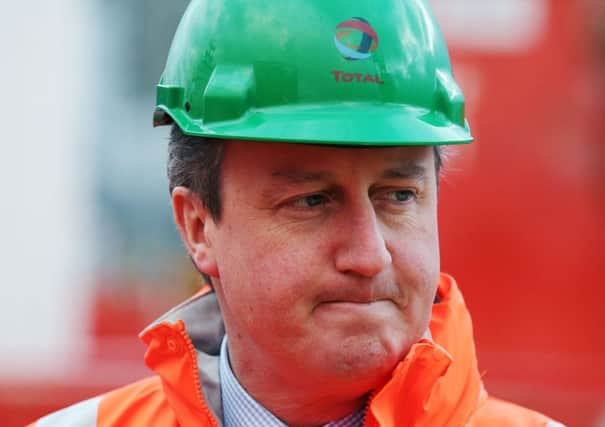Rosalie Chadwick: Oil depends on new tax deal


Let’s first acknowledge that in the last Budget, the UK government announced a cut in petroleum revenue tax from 50 per cent to 35 per cent (reversing a 2011 increase), reduced the supplementary charge by 10 per cent to 20 per cent and set aside £20m to support more seismic surveys of North Sea fields.
Leaving aside the fact most in the industry thought this woefully inadequate when crude was $60 a barrel, now we are in $30 territory many fear that unless further concessions are made we risk a flight of capital, skills and technologies which will not return.
Advertisement
Hide AdAdvertisement
Hide AdTo the estimated 65,000 people who have lost their jobs in the last 18 months Cameron’s words will ring hollow unless this City Deal is followed up by concrete action in the form of further tax cuts for exploration and production companies operating in the UK Continental Shelf (UKCS).
The UKCS has for decades had one of the highest level of taxes of all oil-producing countries and suffers a double whammy of being a mature basin. Simply put, the headline tax on profits (65 per cent) must be reduced to be more competitive with other oil-producing regions and more consistent with other major domestic industries.
Indeed, these views chimed with a major survey published last week by Pinsent Masons, which sought the views of 200 senior oilfield services and private equity firm executives. The overall tone of the report was generally upbeat – an overwhelming 96 per cent of respondents believed the UKCS would recover to “peak” levels of profitability, with 28 per cent saying that would be within three years, while almost half thought it would take up to five years.
It is well-known that the UK is among the highest operating cost environments in the world in the oil and gas space, so it has been by necessity that oilfield services have had to look to other countries to improve their margins.
The report also highlighted that in 2016 we can expect a surge in mergers and acquisitions, driven by a mix of companies looking to internationalise operations, a desire to acquire game-changing technologies (a great deal of which has been developed from Aberdeen know-how) and those seeing opportunities by turning around distressed assets.
Looking ahead, we expect this next year to be a time of transformation and challenge that will bring forward the pioneering spirit that exemplifies much of the oil and gas sector. There will be winners and losers from the current cycle, and while there can be no guarantees of success, the chances will be greater if Westminster follows through on the promises made last week by Cameron.